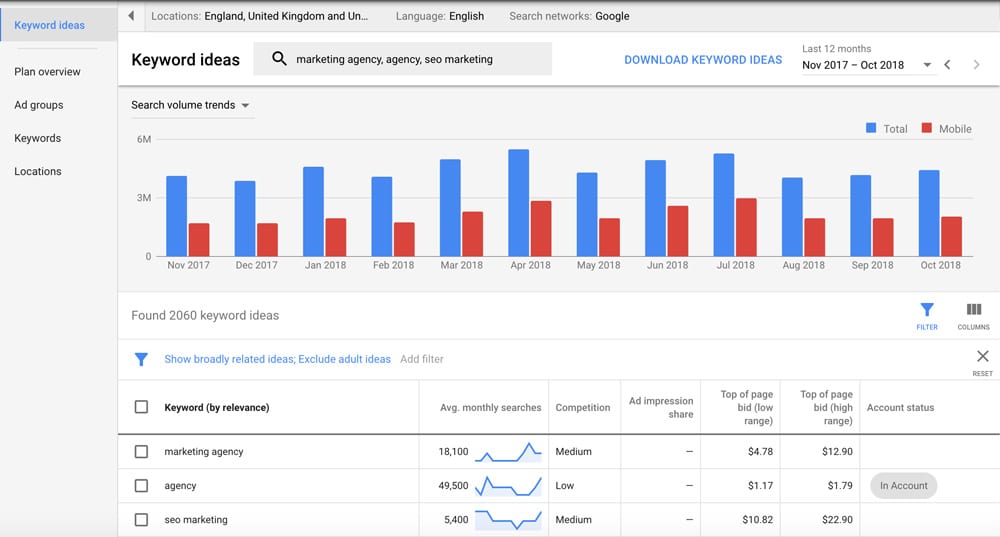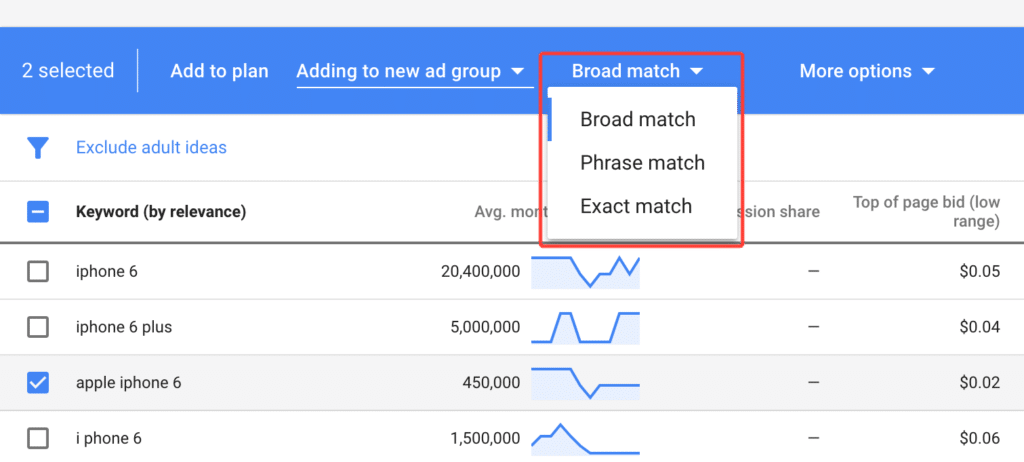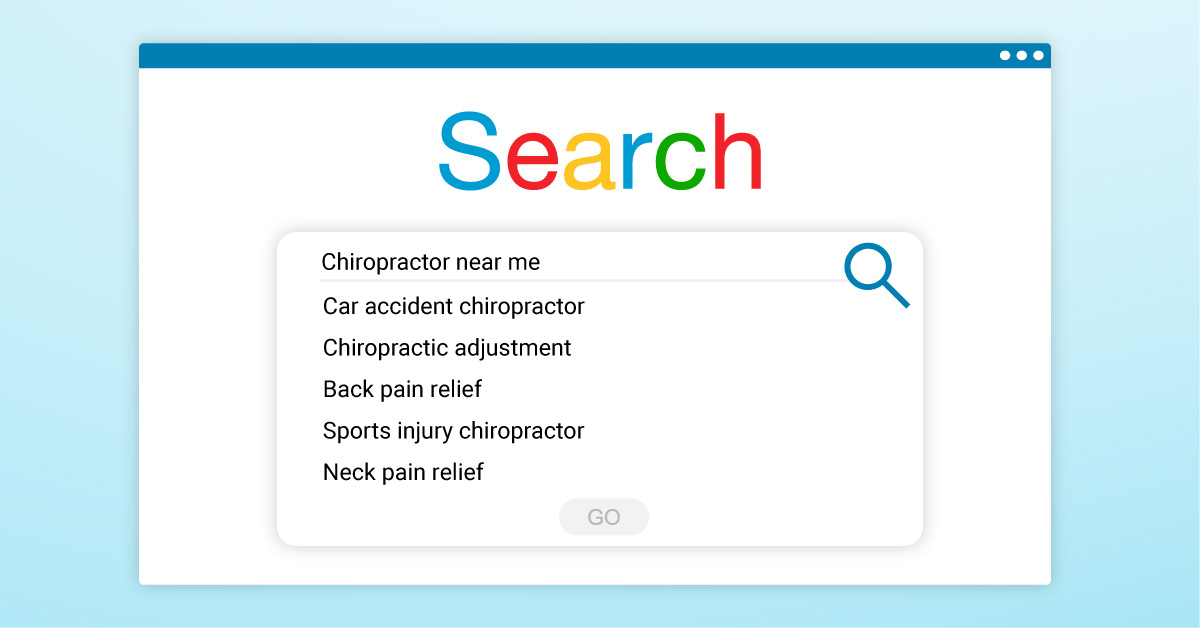The Beginner’s Guide to Negative Keywords
As a small to medium-sized business, it’s important to be responsible with every penny you spend, especially to run online advertisements. If you’re new to using ad campaigns to get more traffic to your website and increase business, then welcome aboard!
You may still be learning all the ins and outs and not be aware of what you should and shouldn’t do in order to run a successful campaign. That’s why we’re here to help.
When running a PPC (pay-per-click) campaign, it’s necessary to include a list of targeted keywords. However, not everyone knows that it’s crucial to include a negative keywords list as well.
When you create ads, you’re looking for a specific type of lead. When someone that isn’t in your targeted demographic clicks on your ad, it wastes money and resources. You can eliminate the chances of this happening by utilizing negative keywords in your campaign. It is equally important to identify users who are searching for businesses like yours as it is to eliminate those who aren’t eligible for your services.
What are negative keywords?
Before we get started on how to implement negative keywords into your PPC strategy, you’re probably wondering, what are negative keywords, anyway? To put it as simply as possible, negative keywords are words or phrases that you don’t want your ad to show up for on a search query.
When you create your negative keywords list, this controls when your ad does and doesn’t show up for a user. The keywords that you choose to include should vary based on what industry you are targeting.
For example, if you are a vision therapist and specifically work with children and adults who need therapy, when someone searches for the phrase “optometrists near me,” and your ad comes up, this does not benefit you or your business. You want your ad to specifically show up for users who are searching for a vision therapist in their local area.
Also, when someone clicks on your ad but clicks out of it immediately, this alerts search engines like Google that there may be something wrong with your website or landing page. This can, in turn, lower your position on the SERPs (search engine results pages).
You can easily stop wasting money on clicks from irrelevant searches and jeopardizing your Google ranking by utilizing negative keywords. But, how do you find them?
How to find negative keywords.

In order to find negative keywords, you have to find out the type of search queries that users are making online. You can find this information by using Google Ads Keyword Planner. The keyword planner is an extremely useful tool that allows you to bid on targeted keywords and phrases to add to your account.
When you type a specific word into your keyword planner, the search report will show you what users are searching to trigger your PPC ads. The search report will also show you the average monthly search for that word, how high your competition is, and a suggested bid amount.
The keyword planner was not created to help you find negative keywords, but here’s how you use it to do so.
After you’ve curated the list of words that trigger your ad to show up the most and will lead to the highest conversion rate, utilize this same tool to analyze which words are low performing and violá! You‘ve got yourself a negative keywords list.
The words that are not generating a good click-through-rate from users and lead to a low conversion number should go on your negative keywords list. Now you have a list of positive and negative keywords and phrases that should help you to generate better results for your PPC campaign.
Choosing the match type.

To break this process down even further, when choosing your negative keywords, you have the option of different match types to use. These are your options:
1. Broad Match
If you choose to utilize broad match, the negative keyword phrases that you wish to avoid will be matched to any version of the phrase, even if the word order is reversed. These may not be the words that you are targeting. For example, if someone searches “glasses for sale,” and you’ve decided to use that as a negative keyword phrase, your PPC ad will not appear for this search. Or, the user could search “sale on glasses and contacts” and it still would not show up. The downside to this match is that if the search has only PART of the phrase, your ad will be shown to the user.
2.Phrase Match
This type of match is less restrictive than the first. If the user searches the exact negative keyword phrase, then your ad will be blocked from popping up. Even if they add an extra word to the query such as “bifocal glasses for sale,” it will still not show. But, with this match type, if the order of words is reversed, your PPC ad will appear in the results.
3.Exact Match
For the last option, you have total control over search query eliminations. When the search has the exact keyword match, your ad will never come up. Adding extra words into the phrase still won’t force your ad to show on the SERPs.
If you are attempting to eliminate an exact keyword, the third option would serve you the best.
The benefits of using negative keywords.
The number one reason that most businesses choose to utilize negative keywords in their PPC campaign is to avoid the loss of money on irrelevant searches. And who doesn’t like saving their hard-earned money?
By adding this strategy to your campaign, you can increase your click-through-rate because your ad will show up to people who are actually interested in a product or service you are selling and therefore will browse your website. This in turn also decreases your bounce rate.
You’ll also see your conversion rates improve and when this happens, it will raise your overall quality score on Google.
Apply negative keywords to your ad campaigns.

When constructing the strategy for your PPC campaign, a list of targeted and negative keywords should both be part of your plan to maximize your online marketing efforts and return-on-investment. It saves you money by blocking your advertisement from showing up for irrelevant searches. It also saves time by eliminating audiences who are not part of your target demographic. So, remind us again why you aren’t applying negative keywords to your campaign?
If you need information about how to run the best PPC campaign possible, check out these other resources
How to Target Your Ideal Clients with Local Marketing
How Does Pay-Per-Click Work?
Tracking the Success of Your Practice’s PPC Campaign
PGNlbnRlcj48ZGl2IGRhdGEtaWQ9Ijk4ZGQ2MWYzOGQiIGNsYXNzPSJsaXZlY2hhdF9idXR0b24iIG9uY2xpY2s9InBhcmVudC5MQ19BUEkub3Blbl9jaGF0X3dpbmRvdyh7c291cmNlOidtaW5pbWl6ZWQnfSk7IHJldHVybiBmYWxzZSI+PGEgaHJlZj0iIyI+PGltZyBzcmM9Imh0dHBzOi8vaW1hdHJpeC5jb20vd3AtY29udGVudC91cGxvYWRzLzIwMTgvMDUvbGl2ZS1jaGF0LWJsb2ctMS5qcGciIGFsdD0iaU1hdHJpeCBMaXZlQ2hhdCIgd2lkdGg9IjgwMHB4IiBoZWlnaHQ9IjIyNXB4IiBib3JkZXI9IjAiPjwvYT48L2Rpdj48L2NlbnRlcj4=



